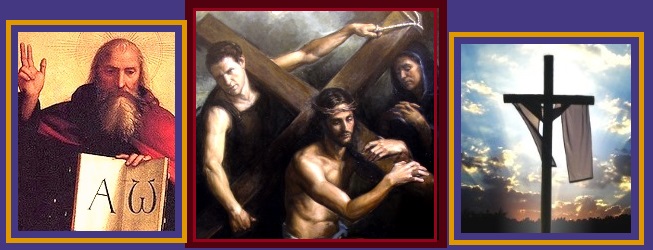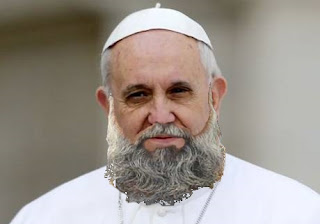It
always bothers me when I hear someone speak about the “Deuterocanonical” books
of the Old Testament. It bothers me even more when Catholics do it.
The
eminent Protestant professor Walter Kaiser has a fantastic book, which I highly
recommend, called The Old Testament Documents: Are They Reliable & Relevant.
In it, he talks about the Old Testament
Canon, and this is where I disagree with his otherwise solid book.
Kaiser
and other Protestants affirm only 39 books of the Old Testament as Canonical
(they leave out Tobit, Judith, Wisdom of Solomon, Ecclesiasticus [also known as
Sirach], Baruch, and 1 and 2 Maccabees), whereas Catholics hold that there are
46 books. Kaiser asks the question:
“Who…made
the decision as to what books were to be included in the canon and what were
the criteria that were used?”
He
answers his question by stating, “The answer we could give is that there is no
evidence that any group, council, or any other religious or nonreligious body
made such a decision, much less left a clue as to what their criteria were.”
Historically,
this is simply false.
The
Christian Canon of the Old Testament was established first in 382 at the
Council of Rome, which was held under Pope Damasus. Here is what is has to say:
“Likewise it has been said: Now indeed we must treat of the
divine Scriptures, what the universal Catholic Church accepts and what she
ought to shun.
The order of the Old Testament begins here: Genesis
one book, Exodus one book, Leviticus one book, Numbers one book, Deuteronomy
one book, Josue Nave one book, Judges one book, Ruth one book, Kings four books
(meaning 1 and 2 Samuel and 1 and 2 Kings), Paralipomenon two books (1
and 2 Chronicles), Psalms one book, Solomon three books, Proverbs one book,
Ecclesiastes one book, Canticle of Canticles one book, likewise Wisdom one
book, Ecclesiasticus (Sirach) one book.
Likewise the order of the Prophets. Isaias one
book, Jeremias one book (Baruch is included here), with Ginoth, that is,
with his lamentations, Ezechiel one book, Daniel one book, Osee (Hosea)
one book, Amos one book, Micheas (Micah) one book, Joel one book, Abdias
(Obadiah) one book, Jonas (Jonah) one book, Nahum one book, Habacuc
one book, Sophonias (Zephaniah) one book, Aggeus (Haggai) one
book, Zacharias one book, Malachias one book.
Likewise the order of the histories. Job one book,
Tobias one book, Esdras two books (Ezra and Nehemiah), Esther one book,
Judith one book, Machabees two books."
Notice
that there isn’t any talk of a “second-canon” or “deuterocanonical” books.
There was only ONE canon of Sacred Scripture. The seven books that the
Protestants reject never had a secondary status!
The later councils of Hippo
and Carthage (393 and 397) both affirmed the same books as being canonical.
Then
in 405, Pope Innocent I in his epistle “Consulenti tibi” to Exuperius, Bishop
of Toulouse, enumerates the same books that were listed at Rome, Hippo, and
Carthage as being canonical. From here on until 1442 there is no more talk of
the canon amongst the Popes or councils of the Church.
The
Council of Florence in 1442 lists the same as has been listed previously, again
with no mention of a second canon.
Then
in 1546, at the Council of Trent, the Church reaffirms the list found at
Florence in reaction against the Protestants taking out of the seven books
mentioned previously.
Thus,
history witnesses against Kaiser’s claim that “At the Council of Trent (A.D.
1546), the Roman Catholic Church also added as canonical [the seven
books]…though always with a secondary or deuterocanonical status.”[1]
So
let us Catholics fervently reject the term “Deuterocanonical” and only speak of
the Canon! There has always only been ONE canon, and one alone.
[1]
To Kaiser’s credit, he does not try to invoke the oft used myth that a council
of rabbis took place at Jamnia which settled the Hebrew canon in 90 A.D.
Instead, he firmly rejects the notion and states that all that took place at
Jamnia was a discussion on how to interpret the books of Ecclesiastes and the
Song of Solomon. There was no mention of their canonical status. On top of all
that, if Jamnia did settle the Jewish canon, which it did not, why would the
Church be bound to accept it? It wouldn’t and any notion that it should is to
be rejected as ludicrous.












